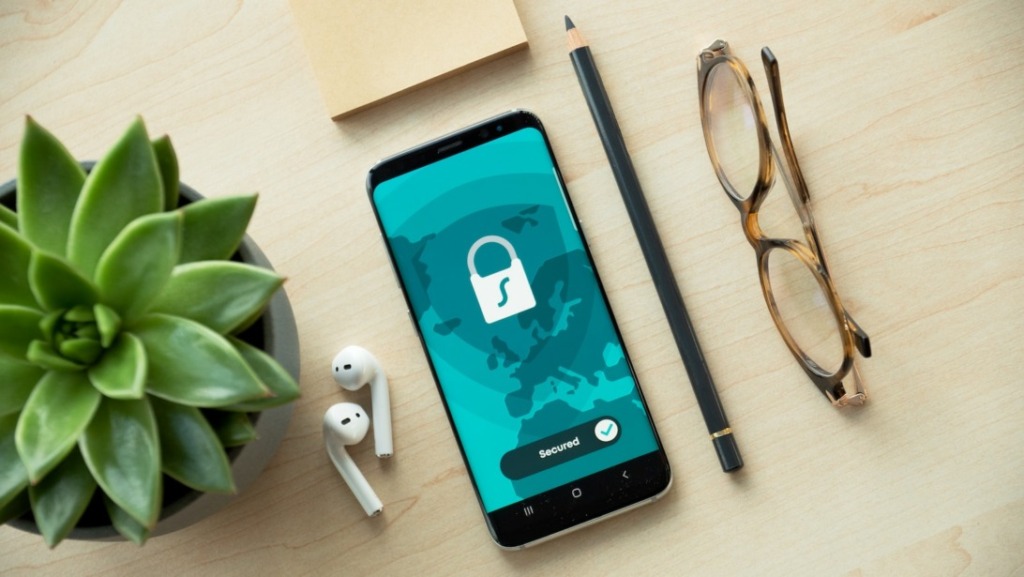The internet has become an indispensable part of our lives, providing us with access to various services and information. However, with the growing number of websites that require users to sign up and create accounts, there is a risk of exposing personal information to cybercriminals. One common mistake that many people make is using the same email address for multiple websites. While this practice may seem convenient, it can put your online security at risk.
This article will explore the importance of having a different email for each website and provide tips on how to manage multiple email addresses effectively. We will also debunk common misconceptions about using multiple email addresses and highlight best practices for email security. By the end of this article, readers will understand why it is essential to take online security seriously and learn practical ways to protect their personal information from cyber threats.
The Risks of Using the Same Email for Multiple Websites
The practice of using the same email for multiple websites poses a significant risk to personal information security and privacy. Identity theft is one of the major risks associated with this practice. When hackers gain access to one account, they can use the same login credentials to access other accounts that share the same email address. This means that if someone gains access to your email account by hacking into a website where you used that email address, they could potentially have access to all of your other online accounts.
In addition, using the same email for multiple websites also increases the likelihood of receiving spam emails. When you sign up for multiple websites with the same email address, it becomes easier for spammers to obtain your contact information and send unwanted messages. This not only wastes time but also puts users at risk as these emails may contain phishing scams or malware.
Overall, it is essential for individuals to protect their personal data from unauthorized access by using unique emails for each website. Doing so will reduce the risks associated with identity theft and spam prevention while keeping sensitive information secure. It is crucial in today’s world where cyberattacks are becoming more common than ever before. Therefore, it is important that people understand the importance of online security and take appropriate measures to safeguard their digital lives.

The Importance of Online Security
Ensuring robust online security measures is imperative to safeguarding personal information and preventing cyber attacks. With the rise of technology, the internet has become an integral part of our daily lives. However, it also exposes us to various threats such as phishing attacks, identity theft, and hacking. Cybercriminals are always looking for ways to exploit vulnerabilities in our online security systems and gain unauthorized access to sensitive data. Therefore, it is crucial to take proactive measures to protect oneself from these potential threats.
One way to enhance online security is by using password managers that generate complex passwords for each website we visit. This eliminates the need for us to remember multiple passwords and reduces the risk of using weak or easily guessable passwords. Password managers use encryption algorithms that store our login credentials securely, making it difficult for hackers to gain access to them. By using password managers, we can rest assured that our accounts are secure even if one of them gets compromised.
Creating a unique email for each website is another effective way of enhancing online security. Using a single email address across multiple websites increases the likelihood of phishing attacks since cybercriminals can use this information against us. Having separate emails for different websites makes it harder for hackers or malicious actors from gaining access to all our accounts simultaneously, reducing the overall impact of a potential breach. It also allows us better control over which websites have access to our personal information while minimizing exposure in case one email address gets compromised.
Ensuring robust online security measures involves taking proactive steps such as using password managers and creating unique emails for each website we visit. These methods go beyond just strengthening passwords but help mitigate potential risks from phishing attacks and other forms of cybercrime. As we continue living in an increasingly connected world where technology plays a significant role in our lives, safeguarding personal information becomes more critical than ever before.
Creating a Unique Email for Each Website
Creating a distinct email address for every website visited is an effective approach to enhancing online security measures. Privacy concerns are escalating due to the increasing number of cyber attacks and data breaches. One way of mitigating these risks is by using unique email aliases for each website, which minimizes the potential impact of a single breach across multiple platforms.
Email aliasing enables users to create separate identities or accounts without having to register with different email service providers. This practice not only enhances privacy but also provides an added layer of protection against phishing scams and spam emails. Moreover, it simplifies account management by allowing users to track their subscriptions, sign-ups, and correspondence from a single inbox.
To manage multiple email addresses, one option is to use an email aggregator such as Gmail or Outlook that allows users to consolidate all their accounts under one umbrella. Another option is to use a password manager that stores login credentials securely while providing easy access through autofill features. Despite some trade-offs such as increased setup time and maintenance requirements, creating distinct emails for each website can significantly enhance online security measures while maintaining user convenience and privacy.

Transition
In light of the benefits associated with creating distinct emails for each website visited, managing them effectively becomes critical in maximizing their effectiveness in enhancing online security measures. Therefore, it’s essential first to understand how best you can manage your multiple email addresses before deciding on implementing this approach entirely.
How to Manage Multiple Email Addresses
Effective management of multiple email addresses is crucial in maximizing the benefits of having a unique email for each website. Research shows that the average person has at least three email accounts, which means organizing and managing these accounts can be overwhelming. However, with proper inbox management, it is possible to keep your emails organized and efficiently manage your online presence.
To effectively manage multiple email addresses, it is essential to have a system in place. One way to do this is by using filters or labels to automatically sort incoming emails into specific folders based on their sender or subject line. Another option is to use an email client that allows you to access all your accounts from one platform, making it easier to manage and respond to emails.
Moreover, there are also tools available that can help streamline the process of managing multiple email addresses. For instance, some apps allow you to merge all your email accounts into one inbox, while others offer features like snoozing or scheduling emails for later delivery. By utilizing these tools and techniques for organizing your emails, you can save time and ensure that important messages do not get lost in cluttered inboxes.
Effective management of multiple email addresses requires proper organization and inbox management strategies. With so many different options available today for managing our digital lives online, it’s important to stay informed about new tools and approaches as they become available. In the next section we will discuss tips for keeping your email addresses secure – an important consideration when dealing with sensitive information online.
Tips for Keeping Your Email Addresses Secure
Maintaining the security of our email addresses is crucial in today’s digital age where sensitive information can easily be compromised, and it is important to adopt measures that safeguard personal information. One way to do this is by setting up filters that block spam emails, phishing attempts, and other malicious messages. Filters can help keep unwanted messages out of our inbox and reduce the risk of falling prey to cybercriminals who use emails as a tool for identity theft or fraud.
Another effective measure for keeping email addresses secure is using password managers. Password managers are software applications that store login credentials and generate strong passwords for each website we visit. By using a password manager, we don’t have to remember multiple passwords or write them down on paper, which could be lost or stolen. Instead, we only need to remember one master password that unlocks all our accounts stored in the password manager app.
In addition to setting up filters and using password managers, having a different email address for each website we visit can also boost our online security. This strategy makes it harder for hackers to access multiple accounts with just one set of login credentials because they would need different usernames and passwords for each account. Furthermore, if one email address gets hacked or spammed, we won’t have to worry about all our other accounts being compromised as well. Instead, we can simply delete or deactivate the affected email address while still maintaining access to our other accounts under different email addresses. In the subsequent section about ‘the benefits of having a different email for each website,’ we will explore this strategy further and discuss how it can enhance not only security but also convenience in managing multiple online identities without sacrificing privacy and control over personal information.
The Benefits of Having a Different Email for Each Website
Having a different email address for each website has become increasingly important in ensuring improved online security, easier management of emails, and increased privacy and control. By using unique email addresses for various websites, individuals can mitigate the risk of their personal information being compromised through data breaches or cyber attacks. Additionally, managing emails becomes more streamlined as users can easily identify which messages are related to specific services or accounts. Finally, having separate email addresses also offers greater privacy and control over personal information as it limits the amount of data shared across platforms.
Improved Online Security
Maximizing online security involves employing different email addresses for each website, as this practice minimizes the risk of a single point of failure and enhances overall protection against cyber threats. By using a unique email address for each website, users can ensure that their accounts are not linked together. This means that if one account is compromised, the attacker will not have access to all other accounts associated with that email address.
To further enhance security, it is advisable to use strong passwords and enable two-factor authentication (2FA) wherever possible. Strong passwords should be complex and unique to prevent unauthorized access to accounts. 2FA adds an extra layer of protection by requiring users to provide additional information beyond a password before accessing an account. This could be in the form of a fingerprint scan or a code sent via SMS or email. By incorporating these measures alongside using different emails for each website, individuals can significantly reduce the likelihood of falling victim to cyber attacks.
Using different emails for each website also makes it easier to manage emails efficiently while keeping them organized. In the next section, we will explore how this practice results in better management of emails without compromising on security.

Easier Management of Emails
Improved online security is a top priority for internet users nowadays. One way to achieve this is by having a different email address for each website or service that you use, which can help minimize the risk of getting hacked or receiving spam emails. But apart from enhancing online security, having multiple email addresses also offers efficient organization and simplified communication.
With different email addresses, you can easily filter out important messages from work or personal emails. It also allows you to keep track of your subscriptions and notifications without cluttering your main inbox. Moreover, it simplifies communication since you can tailor your responses based on the context of the message received.
Moving forward into increased privacy and control, maintaining multiple email addresses will give you greater flexibility in managing your digital identity.
Increased Privacy and Control
Increased privacy and control over your online presence can be achieved by maintaining multiple email addresses. Email tracking is a common practice used by websites to monitor user activity, including opening and clicking on links in emails. By using a different email address for each website, you can prevent these companies from linking your activities across various platforms. Furthermore, personalized marketing is becoming increasingly popular as companies collect data about their users’ preferences and behaviors. By segmenting users based on their email addresses, companies can tailor advertisements specifically to them. However, with multiple email addresses, you have more control over the types of ads that are targeted towards you.
Data mining and identity theft are also concerns when it comes to online privacy. Using the same email address for all of your accounts makes it easier for hackers to gain access to sensitive information such as passwords or personal data. With multiple email addresses, you can compartmentalize your online presence and reduce the risk of having all of your information exposed at once if one account is compromised. In conclusion, maintaining separate email addresses for each website enhances both privacy and control over your online activity by limiting tracking and minimizing risk factors associated with data breaches or identity theft.
Moving on to the next section about common misconceptions about using multiple email addresses…
Common Misconceptions About Using Multiple Email Addresses
Contrary to popular belief, using multiple email addresses for different websites does not necessarily guarantee complete privacy and protection of personal information. Many people have common misunderstandings about the benefits and drawbacks of using multiple email addresses for website logins. One such misconception is that having a separate email address for each site will prevent hackers from accessing all your accounts if one is compromised. While this may be true in some cases, it is not foolproof as hackers can still find ways to connect your different accounts.
Another common misunderstanding is that using multiple emails will make it easier to manage online subscriptions and reduce spam emails. However, keeping track of multiple email addresses can quickly become overwhelming, especially if you use several websites regularly. Additionally, some sites may require users to verify their identity through their email address before allowing access to the account, which makes switching between emails more time-consuming.
Exploring the psychology behind why people tend to reuse the same email for multiple sites, it becomes clear that convenience plays a significant role in this behavior. Using one primary email address across all websites allows for easy login access and cuts down on the number of passwords an individual needs to remember. Moreover, since most people tend to use only a handful of websites regularly, they assume that there’s little risk involved in reusing their main email address across these platforms.
While using separate emails for various online activities has its advantages, it’s essential to understand that this practice doesn’t guarantee complete privacy or protection against hackers. Furthermore, managing multiple emails can be tedious and time-consuming. In the next section on alternatives to using multiple email addresses for website logins let us explore other options available without compromising security or convenience.
Alternatives to Using Multiple Email Addresses
While using multiple email addresses for different websites may seem like a hassle, it is often recommended as a best practice for email security. However, for those who prefer to keep things simple, there are alternatives such as email aliasing and email forwarding.
Email aliasing involves creating an alternate name or address that still routes messages to your primary inbox. This can be useful if you want to use a different name or keyword for different website registrations while still receiving all emails in one place. Many email providers offer this feature, including Gmail and Microsoft Outlook.
Email forwarding allows you to automatically redirect emails from one account to another. For example, you could set up forwarding from your work email to your personal account so that you only need to check one inbox. It can also be used in conjunction with aliasing by setting up separate aliases that forward messages to specific folders in your main inbox.
By utilizing these alternative options, users can simplify their email management while still maintaining some level of security and organization. However, it’s important to note that these methods should not replace the importance of strong passwords and other security measures when it comes to protecting sensitive information within emails.
Moving forward, let’s explore some best practices for ensuring the security of our various email accounts and communications.
Best Practices for Email Security
This subtopic will cover the best practices for email security, which are crucial to ensure that sensitive information remains protected from cyber threats. The discussion will begin with a recap of key points related to email security, including the importance of using strong passwords and avoiding suspicious emails. It is important for individuals to take action to protect their email accounts and encourage others to share information about these best practices to mitigate the risks associated with online communication.
Recap of Key Points
To summarize the main ideas discussed, it is recommended to use a unique email for each website visited as a way to improve online security and privacy. By following this practice, users can prevent their personal data from being compromised by cybercriminals who may try to hack into their accounts or steal sensitive information. Additionally, using different emails helps to protect against spam and unwanted messages that may flood a user’s inbox.
Here are three key reasons why having a separate email for each website is important:
- Benefits of email encryption: When an individual uses the same email address across multiple websites, they expose themselves to potential security risks in case one of those sites gets hacked. By using different emails, users can encrypt important information such as passwords and account details which will make it harder for hackers to access them.
- Importance of two-factor authentication: Two-factor authentication (2FA) adds an extra layer of security by requiring users to provide another form of identification besides just a password when logging into their accounts. When using different emails for various websites, 2FA becomes more effective because hackers have less opportunity to gain unauthorized access.
- Protection against phishing attacks: Phishing attacks are common methods used by cybercriminals to trick individuals into revealing their login credentials or other sensitive information through fake websites or emails that appear legitimate. Having separate emails makes it easier for users to identify suspicious activity and avoid falling victim to these scams.
Having a unique email address for each website visited is essential for maintaining online security and privacy in today’s digital age. It provides protection against hacking attempts, spam messages, and phishing attacks while also making two-factor authentication more effective. Taking action towards safeguarding personal data should be a top priority in order to avoid becoming vulnerable to cyber threats on the internet.

Importance of Taking Action
It is imperative to take action in securing personal information online to prevent cyber threats and potential data breaches. As more of our lives are conducted through digital means, the importance of taking responsibility for one’s own online security cannot be overstated. This includes using unique passwords for each website and having a separate email address for each account. By doing so, individuals can significantly reduce their vulnerability to hacking attempts and other malicious activities.
Taking action also involves staying informed about current security risks and being vigilant when sharing personal information online. While it may seem tempting to provide personal details in exchange for convenience or access to certain services, it is important to carefully consider the potential consequences of such actions. By taking a proactive approach to protecting our personal information online, we can help ensure that our digital identities remain secure and protected from harm.
Moving forward into the subsequent section about ‘encouragement to share information with others’, it is important to recognize that safeguarding our digital identities is not solely an individual responsibility – it is also a collective effort. By educating ourselves and others about best practices for staying safe online, we can work together towards creating a safer and more secure online environment for all users.
Encouragement to Share Information with Others
Encouraging others to share information online can be a powerful tool for building community and fostering connections, but it is important to do so in a safe and responsible manner. Sharing knowledge with others can lead to the creation of new ideas and innovations that may not have been possible without collaboration. However, it is crucial to remember that any information shared online can potentially be accessed by anyone. Therefore, individuals should take measures to protect their personal data and only share information they are comfortable making public.
Building community through sharing knowledge also involves creating an environment where individuals feel comfortable expressing their thoughts and opinions. Encouraging open dialogue within online communities can help foster trust among members and create an inclusive space where everyone’s voice is heard. It is important to acknowledge that while sharing information has many benefits, there may also be risks involved. It is therefore essential for individuals to educate themselves on online safety practices before sharing anything in order ensure they are protecting themselves and others from potential harm. Ultimately, promoting responsible sharing practices can lead to a more connected world where people feel empowered to express themselves freely while still maintaining their privacy.
Conclusion
Using the same email for multiple websites can put your online security at risk. Creating a unique email for each website is crucial in protecting your personal information from hackers. Managing multiple emails may seem daunting, but there are tips to help make the process easier and keep your email addresses secure.
According to a study by Verizon, 81% of hacking-related data breaches were caused by weak or stolen passwords. By using different emails for each website, you can also use different passwords, making it harder for hackers to gain access to all of your accounts if one password is compromised.
In conclusion, having a different email for each website is an important step in maintaining online security. With the prevalence of data breaches and hacking attempts, taking measures such as creating unique emails and strong passwords can greatly decrease the likelihood of becoming a victim. Although managing multiple emails may require more effort on the user’s part, the benefits far outweigh any inconvenience.

